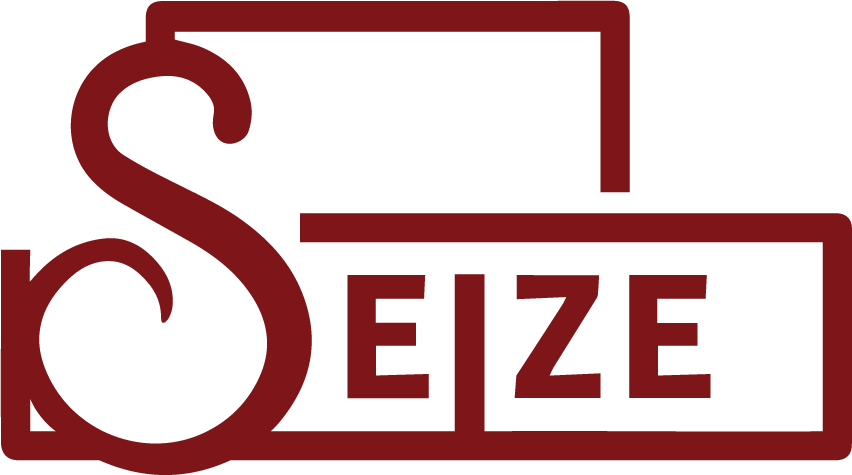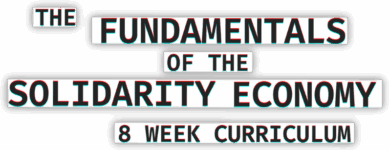Session 7 Resources
No Bosses, No Problem

Imagine your favourite café: the atmosphere is warm, the staff know your name, and you even get a discount on your order. Now imagine you also get a say in what’s on the menu. Sounds unusual, right? That’s cooperation in action!
In this session, we’ll explore the different types of cooperatives and nonprofits that make up the social solidarity economy, why they offer real alternatives outside of capitalism, and how democratic decision-making can extend into every aspect of our daily lives. We’ll also compare cooperative models with other business structures, highlighting how they can move beyond conventional economic frameworks toward systems of solidarity and mutual aid.
Learning Outcomes
- Leave with an understanding of the different types of businesses and organizations within the social solidarity economy
- Gain recognition of how co-ops and nonprofits differ from conventional business models
- Imagine and design ways to build democracy into everyday life
Read
What is a Co-op?
This zine overviews the co-operative model and its principles.
Read
What is a Multi-Stakeholder Co-op?
Different types of co-operative models utilize different types of membership.
Read
Participatory Economy Overview
A Participatory Economy is a model for how a modern economy of millions of people could be organised around democracy and cooperation instead of competition or top-down command.
Read
People-Centered Business
What is it that makes social enterprise that centres user- and member-ownership over investment-based ownership such a desirable method of organizing business.
Read
CWCF: Worker Co-ops and the Social and Solidarity Economy
What exactly is the SSE, how do worker co-ops fit into it, and how can they best collaborate with it? And what about social enterprises? Here’s a start at answering these questions.
Explore
Take Back Business
This activity from Gibson-Graham’s book, Take Back the Economy (2013) will help you reflect on what you already know about different models of entrepreneurship and further emphasizes the importance of ownership.
Explore
Case Study: Emilia Romagna, Italy
Six lessons from the Emilia Romagna region of Italy, where co-operatives make up roughly 30% of the GDP.
Watch
Cooperative Economics and Civil Right
In this interview, Jessica Gordon-Nembhard speaks on the history of collective organizing of Black Americans, particularly how cooperative economics have been used as a means of cultural and community resilience, resistance and benefit.
Watch
These Companies with no CEO are Thriving (Ted-ED Talk)
At a co-op, there’s no single person with overarching, top-down power over everyone else, like a CEO at a traditional company. So what exactly is a co-op and how does it work? Explore the different types of cooperatives and how they operate.
Read
Coop Creator: How to start a co-operative: a step-by-step guide
Starting a co-op? This article provides a step by step guide on how to start a co-operative.
Read
How to start up a social enterprise in 10 steps
So you’ve got an idea you think could make the world a better place. Even better, you think it can make money. How do you go about turning your idea into a real business?
Watch
Guide to Co-operatives
A short and practical guide for anyone considering worker-owned co-operatives.
Watch
What is a Worker Cooperative?
What are worker-owned cooperatives, and what role might they have in changing the structure of our society?
Explore
CMC: Cooperatives Across Canada Map
Co-operatives and Mutuals Canada (CMC) maintains the most comprehensive map of co-operatives, credit unions, and mutuals in Canada.
Explore
Coops4Coops
A national directory of cooperatives that provide goods & services to other cooperatives! Created and stewarded by SEIZE
Listen
Srsly Wrong Podcast: No Bosses & Participatory Economics W/ Michael Albert
Imagine a world without bosses! The Wrong Boys speak to Michael Albert, author of “No Bosses,” about Participatory Economics, democratic workers councils, fair job complexes, and the process of building a participatory and democratic economy.
Book Rec
No Bosses (Michael Albert)
A concise and accessible introduction to participatory economics, this book goes beyond the self-management practices of cooperatives to propose a broader, scalable framework for organizing economic life around equity, solidarity, and democratic participation.
Contact:
Hannah Ostiguy Hopp
programs@solidarityeconomy.ca

